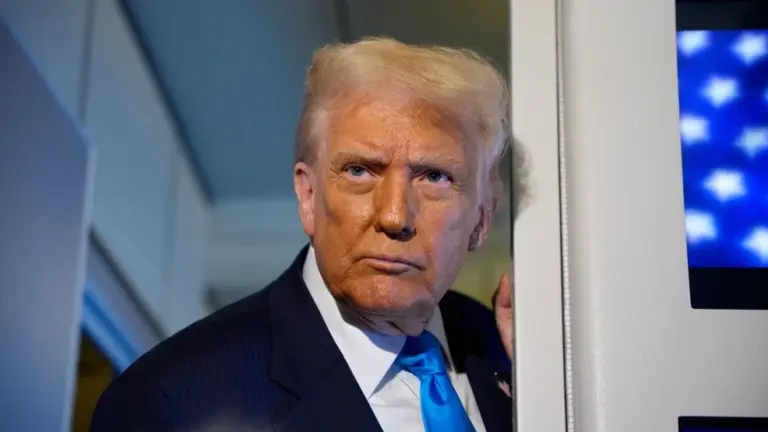In a bold and unprecedented move, President Donald Trump announced on Saturday that the United States is considering military intervention in Nigeria, citing the ongoing violence and persecution targeting Christian communities as a critical threat to international stability.
Through a post on social media, Trump warned that if Nigeria’s government fails to take decisive action to protect Christians, the U.S. will suspend all aid and may even deploy military forces. “If Nigeria continues to permit the slaughter of Christians, we will immediately halt all assistance and consider taking swift, decisive action,” he declared. “Our Department of Defense has been instructed to prepare for possible operations. If we intervene, it will be quick, fierce, and effective—just like the terrorists’ barbaric attacks on our cherished Christian brothers and sisters.”
This statement marks a significant escalation in U.S. foreign policy regarding Nigeria, which has recently been the subject of international concern over religious violence. President Trump’s comments come shortly after Nigeria’s government publicly rejected accusations of systemic religious intolerance.
In a separate statement, Nigerian President Bola Tinubu reaffirmed the country’s commitment to peace and religious harmony. “Nigeria’s strength lies in its diversity,” Tinubu said. “We uphold the constitutional rights of all citizens to worship freely and condemn any acts of violence or persecution. Our nation remains committed to protecting citizens of every faith.”
Trump’s recent remarks allege that “radical Islamic groups are orchestrating a genocide against Christians in Nigeria,” and warn that the violence poses a threat not only to Nigeria but to regional stability. Critics, however, caution against oversimplifying Nigeria’s complex security landscape, which involves a mix of religious, ethnic, and socio-political tensions.
Nigeria’s roughly 220 million inhabitants are almost evenly divided between Christians and Muslims. The country has long wrestled with insurgent groups like Boko Haram and ISIS-West Africa, which aim to impose their radical interpretations of Islamic law. While Boko Haram has primarily targeted Muslims they consider insufficiently devout, Christians and other minorities have also suffered from violence—sometimes as collateral damage in broader conflicts.
Many analysts emphasize that Nigeria’s unrest is multifaceted, rooted in economic hardship, ethnic rivalries, and governance issues, rather than solely religious differences. The northern regions, predominantly Muslim, have seen the highest levels of violence, but Christians across Nigeria have also been victims of targeted attacks and communal clashes.
In response, Nigeria’s Foreign Affairs Ministry spokesperson, Kimiebi Ebienfa, reaffirmed the government’s dedication to national unity and religious tolerance. “Nigeria is committed to defending the rights of all its citizens,” Ebienfa stated. “Our country celebrates its diversity and condemns any violence based on religion or ethnicity. We will continue to pursue peace and stability.”
The U.S. first designated Nigeria as a “Country of Particular Concern” (CPC) for religious freedom violations in 2020. Although the designation was lifted in 2023 as part of diplomatic efforts, President Trump’s recent comments indicate a potential shift in U.S. policy, signaling increased concern over Nigeria’s internal conflicts.
International observers urge caution, emphasizing that military intervention may not be the solution to Nigeria’s internal struggles. Many advocate for diplomatic engagement, development aid, and human rights initiatives to foster long-term stability.
As tensions rise, Nigeria stands at a crossroads. The coming weeks will be critical in determining whether external threats escalate further or if dialogue and reform can pave the way for peace in one of Africa’s most populous nations.

